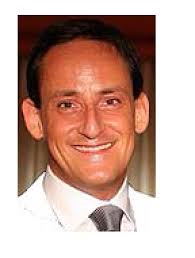Author Interviews, Johns Hopkins, Surgical Research, Vitamin D / 29.12.2015
Vitamin D Status May Influence Bariatric Surgery Outcomes
MedicalResearch.com Interview with:
Leigh A. Peterson, PhD, MHS
Post-doctoral fellow
Department of Surgery - Bayview
Johns Hopkins School of Medicine
Medical Research: What is the background for this study? What are the main findings?
Dr. Peterson: From our previous study published in Obesity Surgery earlier this year, we knew that vitamin D deficiency and insufficiency was very common in our bariatric surgery candidates (71.4% < 20 ng/ml and 92.9% < 30 ng/ml). We wanted to explore the effect of this deficiency on adverse outcomes after bariatric surgery such as wound healing, infection, and extended hospital stay.
We turned to the Nationwide Inpatient Sample to answer this question, as it would contain enough surgeries to detect changes in even less frequent outcomes such as wound infection. But blood concentration of vitamin D is not available, so we used a traditional method to estimate group vitamin D status with season and geography. Vitamin D comes from the sun, so people have the most vitamin D in summer and in sunnier places.
In 932,091 records of bariatric surgeries from 2001 to 2010, we saw that more adverse outcomes occurred during winter—January to March, the time of lowest vitamin D status—compared to summer or even spring or fall. Additionally, most adverse outcomes occurred in northern latitudes (≥ 37°N) compared to sunnier southern latitudes.
(more…)

 MedicalResearch.com Interview with:
Dr. Giuseppe Andò
University of Messina, Messina, Italy
Medical Research: What is the background for this study?
Dr. Andò: Patients’ preference for radial access for coronary angiography and percutaneous intervention is paralleled by an almost complete abolition of access-site bleeding. Given the deleterious impact of any clinically relevant bleeding event on short- and long-term outcomes, the use of radial access should translate into a reduction in net adverse events, especially in patients with high risk of bleeding such as those with an acute coronary syndrome. Nonetheless, studies conducted over the past decade by pioneers of
MedicalResearch.com Interview with:
Dr. Giuseppe Andò
University of Messina, Messina, Italy
Medical Research: What is the background for this study?
Dr. Andò: Patients’ preference for radial access for coronary angiography and percutaneous intervention is paralleled by an almost complete abolition of access-site bleeding. Given the deleterious impact of any clinically relevant bleeding event on short- and long-term outcomes, the use of radial access should translate into a reduction in net adverse events, especially in patients with high risk of bleeding such as those with an acute coronary syndrome. Nonetheless, studies conducted over the past decade by pioneers of 



